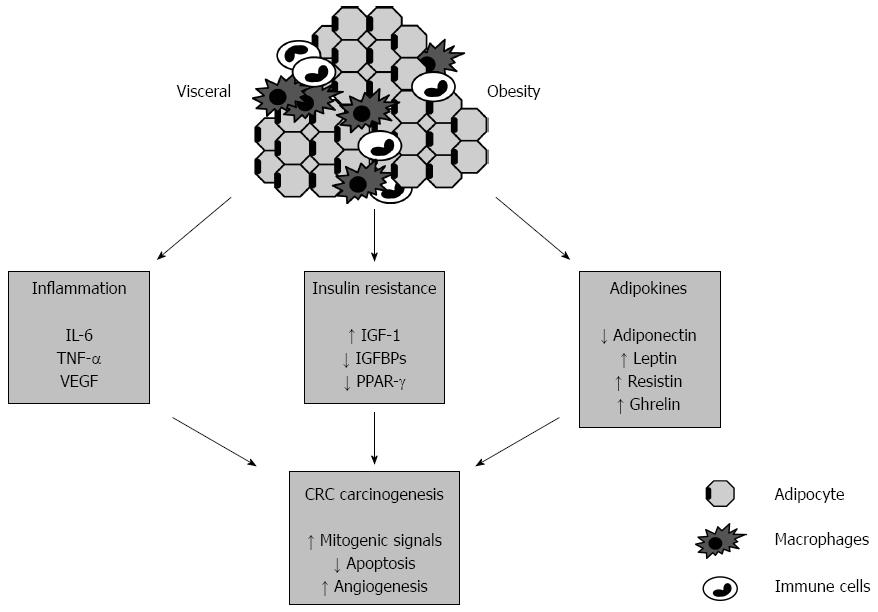Copyright
©2014 Baishideng Publishing Group Co.
World J Gastroenterol. May 14, 2014; 20(18): 5177-5190
Published online May 14, 2014. doi: 10.3748/wjg.v20.i18.5177
Published online May 14, 2014. doi: 10.3748/wjg.v20.i18.5177
Figure 1 Mechanisms linking adiposity to colorectal cancer carcinogenesis.
Among these, obesity-related insulin resistance, inflammation and adipocytokine production. Adipose tissue macrophages infiltrating visceral adipose tissue exhibit a phenotypic switch from an anti-inflammatory and adipostatic to a proinflammatory and pro-adipogenic phenotype, thus contributing to obesity-related inflammation and insulin resistance. IL-6: Interleukin-6; IGF-1: Insulin-like growth factor-1; IGFBPs: Insulin-like growth factor binding protein; TNF-α: Tumor necrosis factor-α; VEGF: Vascular endothelial growth factor; PPAR-γ: Peroxisome proliferator-activated receptor-γ.
- Citation: Riondino S, Roselli M, Palmirotta R, Della-Morte D, Ferroni P, Guadagni F. Obesity and colorectal cancer: Role of adipokines in tumor initiation and progression. World J Gastroenterol 2014; 20(18): 5177-5190
- URL: https://www.wjgnet.com/1007-9327/full/v20/i18/5177.htm
- DOI: https://dx.doi.org/10.3748/wjg.v20.i18.5177









